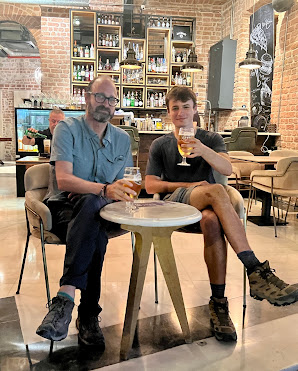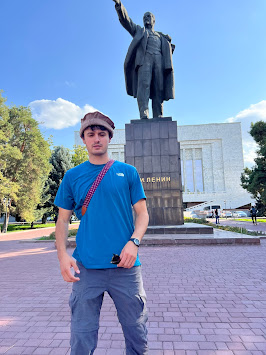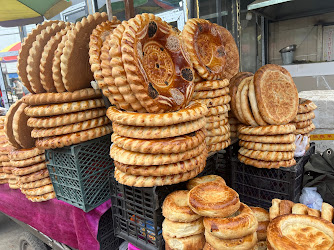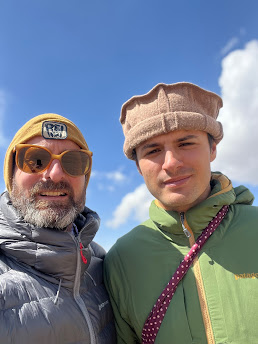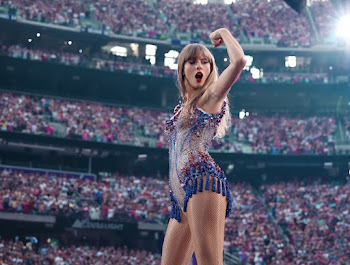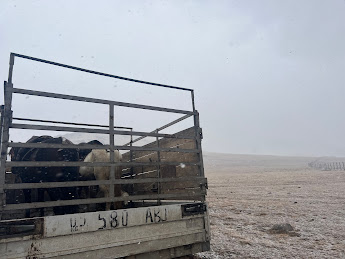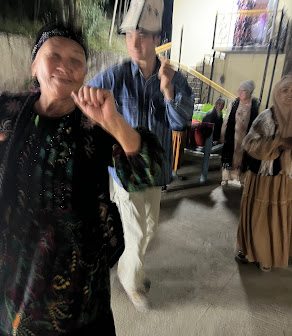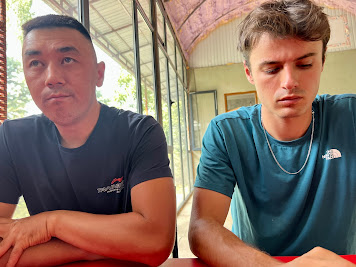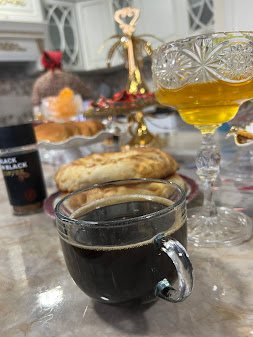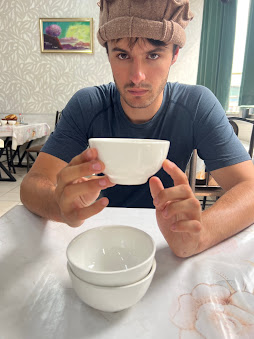Kairet and Nurkyz, the groom and bride, look decidedly uncomfortable both during the dinners (separated) and dancing - where they stand awkwardly, she holding his arm and looking downward (for respect to men, which she will do for the next several weeks) and he is stiff as a board.
Jyghal explains, there is no sex before marriage - "it is impossible" (and called "harem") which would be the most "horrible thing" in Sunni Islam - he snickers it is OK for Shia though.
This will presumably be the couple's first time with the naked opposite sex nor have they been allowed pictures of "bikini women" or sex education, at least formally or in the family. I can see why they may be petrified.
The bride and groom have know each other four years and it is Kairet's decision of marriage. Once agreed, he makes the argument to his family presenting Nurkyz's friends, reputation and family history.
Before the wedding there is a 'Nika' where the imam of their mosque prays for the couple, enabling them to become husband and wife. Then it - sex - is 'Halal', clean, and OK.
In Sunni Islam, before the ceremony, the bride is checked by two or three people to confirm she is a virgin, which is reported to the husband's mother (I do not ask who does the checking as I sense it crosses a line). If it checks out, a dowery to the bride's family is discussed and called "Kalan," Jyghal says, "we will pay for her, it is like this is Islam." How much? 250,000 somone and six sheep ($3,500+$500 for each sheep). It is a negotiated sum that started at 400,000 somone and ten sheep.
Party? Dates are set within a month. The bride's family hosts. There is a culling of numbers ("it is very big money, we must cut everyone"). Despite the enormous family burden, we are included with a moment's hesitation ("Rirsk" means "God to bring all together with us, special guests and generous always").
Groom's evening

